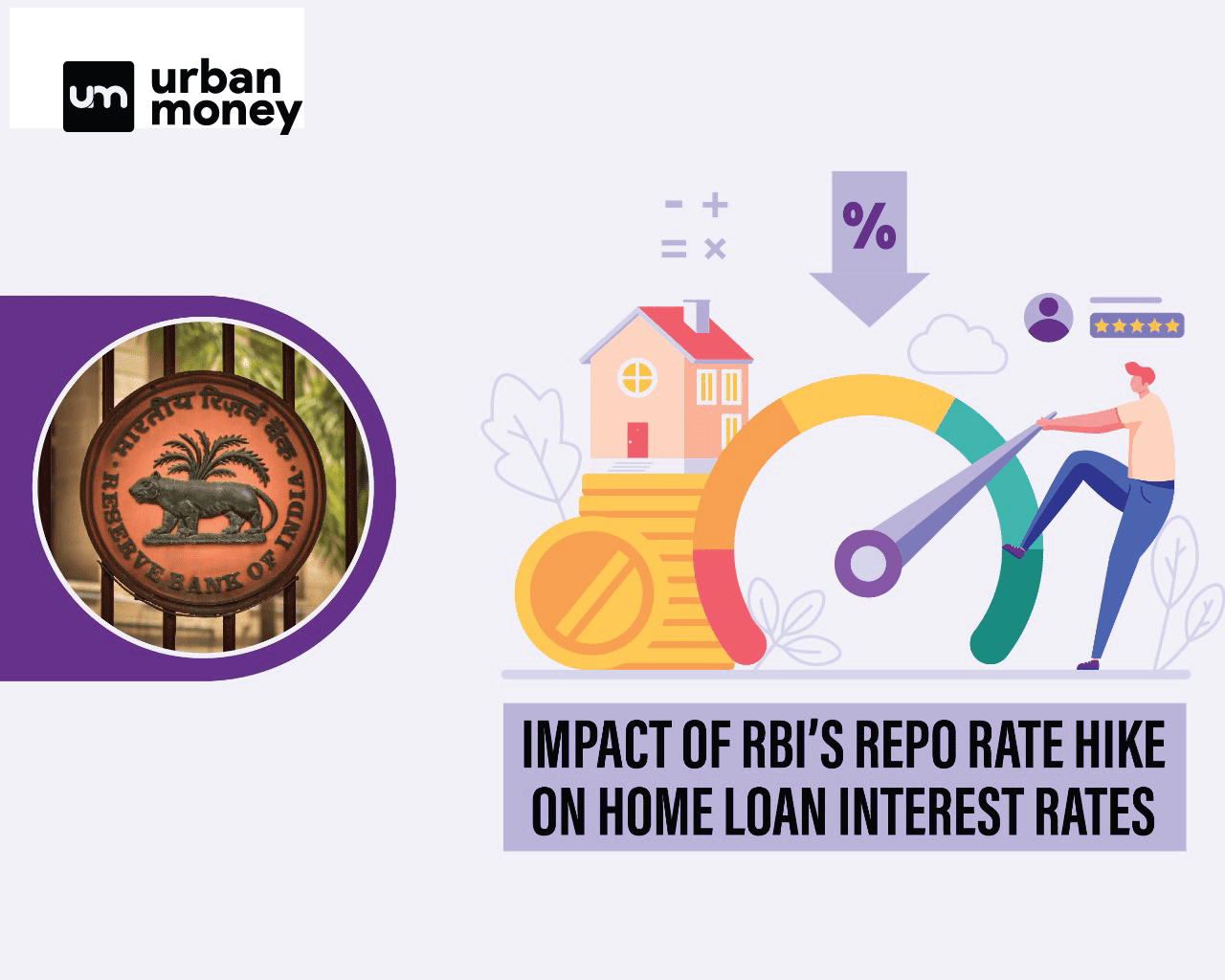Clear land titles refer to the legal ownership of a piece of land with no pending disputes or litigation related to the property. For home loan applicants in India, clear land titles are of utmost importance as it is one of the essential factors that lenders consider when approving a home loan application. Having clear land titles assures the lender that the property is legally owned by the borrower and is free from any disputes or encumbrances.
Significance of Clear Land Titles for Home Loans in India
Clear land titles are essential for obtaining home loans in India because:
- A clear title ensures legal ownership of the property, which is necessary for the lender to provide a home loan.
- A clear title assures the lender that no other parties claim property ownership, reducing the risk of disputes and litigation.
- Banks and financial institutions rely heavily on land titles as collateral for a home loan. If the title is clear, they can recover their money if the borrower defaults.
- A clear title ensures that the property is free from legal encumbrances, such as liens, mortgages, or other claims, which can negatively impact the property’s value and the borrower’s ability to obtain a loan.
- It also reduces the time and cost of the loan approval process, as lenders can conduct simple due diligence to ensure the title is clear.
- Clear land titles also provide a sense of security and peace of mind to the borrower, knowing that they own the property legally and will not face any legal challenges in the future.
- Finally, it is also important to note that many states in India offer a waiver or reduction in stamp duty fees for properties with clear titles, making it more affordable for borrowers to purchase a home.
Consequences of Ambiguous Land Titles on Home Loans
Ambiguous land titles refer to situations where the ownership of the property is unclear or in dispute, and there is uncertainty regarding the owner’s legal rights. The consequences of ambiguous land titles on home loans in India are.
- High-interest rates: Banks and financial institutions consider ambiguous land titles as high-risk loans, and therefore, they may charge higher interest rates, increasing the overall cost of the loan.
- Delay in loan approval: Verifying the authenticity of the property documents is more complicated when there are unclear land titles. It may take longer to get loan approval, and this can cause delays in the home-buying process.
- Inability to secure a loan: Lenders hesitate to provide home loans for properties with ambiguous land titles. This makes it difficult for buyers to secure a loan, even if they have a good credit score and a stable income.
- Legal disputes: Legal disputes over the ownership of the property can lead to lengthy legal battles, which can cause further delays and increase the loan cost.
- Lower resale value: Ambiguous land titles can lower the property’s resale value, making it easier for borrowers to sell the property at a fair market price.
- Risk of foreclosure: In case of default, the lender may be unable to recover the loan amount if the land title is unclear, increasing the risk of foreclosure for the borrower.
The Role of Land Titles in the Home Loan Approval Process
Land titles play a crucial role in India’s home loan approval process. The process involves several steps, and the land title is an essential aspect that the lender considers. The role of land titles in the home loan approval process are:
- Verification of legal ownership: The lender verifies the land title to confirm the legal ownership of the property. It ensures that the borrower has the right to sell the property and that there are no legal disputes or liens.
- Security for the loan: The land title serves as collateral for the home loan. If the borrower defaults on the loan, the lender can sell the property to recover the loan amount.
- Determination of loan amount: The property’s value, as determined by the land title, is a critical factor in determining the loan amount. The lender assesses the property’s value and determines the maximum loan amount that can be provided to the borrower.
- Calculation of interest rates: The interest rates on home loans are calculated based on several factors, including the value of the property as determined by the land title, the borrower’s credit score, and income.
- Compliance with legal requirements: The lender ensures that the land title complies with legal requirements and that all necessary documents are in place.
- Reduction in stamp duty fees: Some states in India offer a waiver or reduction in stamp duty fees for properties with clear land titles, which makes it more affordable for borrowers to purchase a home.
Due Diligence: Steps to Verify the Clarity of Land Titles
Due diligence is critical to verify the clarity of land titles before purchasing a property. It involves several steps to ensure the title is clear and free from legal encumbrances. The following are the steps to verify the clarity of land titles through due diligence:
- Obtain a copy of the title deed: The first step is to obtain a copy from the seller. The title deed contains details about the property’s ownership, including the owner’s name, size, and any encumbrances on the property.
- Check the ownership: Verify the ownership of the property by checking the owner’s name on the title deed. Ensure that the seller is the legal owner of the property and that there are no other claims on the property.
- Verify the property dimensions: Check the dimensions of the property mentioned in the title deed with the property’s actual size. Ensure that the property boundaries are marked and that there are no disputes over the property’s boundaries.
- Check for encumbrances: Check for any encumbrances on the property, such as liens, mortgages, or other claims. Check if there are any pending legal disputes or cases involving the property.
- Verify approvals and permits: Verify that the property has all the necessary approvals and permits from the relevant authorities. This includes building approvals, land use permits, and environmental clearances.
- Conduct a site inspection: Visit the property and verify that it matches the details mentioned in the title deed. Check for any unauthorized construction, landfills, or encroachments on the property.
- Hire a legal expert: Finally, it is advisable to hire a legal expert to verify the title’s clarity and conduct due diligence on the property. The legal expert can help identify any issues related to the property and ensure the transaction is legally valid.
Legal Recourse for Homebuyers in Case of Title Disputes
In India, land title disputes are common, and homebuyers must take legal steps to safeguard their interests. If a homebuyer faces land title disputes after purchasing a property, several legal recourses are available to resolve the issue. The following are the legal recourses for homebuyers in case of land title disputes in India.
- One recourse is to file a suit for specific performance against the seller, which requires them to fulfil their obligations under the contract, including transferring the property’s ownership through a clear title deed.
- Another option is to file a suit for cancellation of the sale deed if the title is found to be fraudulent, which cancels the transaction and returns the property to the original owner.
- In case of a dispute over the property’s ownership, a buyer can file a suit for declaration of title, seeking a declaration from the court on the rightful owner of the property.
- Similarly, if the buyer has discovered a dispute on the land title, they can file a suit for injunction, which prohibits any sale or transfer of the property until the dispute is resolved.
- Homebuyers can also file a complaint with the consumer forum if the seller fails to provide a clear title per the agreement.
- Additionally, if the seller is a registered developer, homebuyers can file a complaint with the Real Estate Regulatory Authority (RERA) to redress grievances related to land title disputes.
- Homebuyers should seek legal advice from a qualified lawyer to understand their legal rights and options in land title disputes.
Initiatives by the Government and Industry to Ensure Clear Land Titles
The Indian government and industry have taken several initiatives to ensure clear land titles and to tackle land title disputes. Some of these initiatives include.
- Digitization of land records: The government has undertaken a massive digitization project to convert land records into an electronic format, reducing the chances of land title disputes and helping in speedy dispute resolution.
- Implementation of RERA: The Real Estate (Regulation and Development) Act, 2016, mandates that developers register their projects with the Real Estate Regulatory Authority (RERA) and disclose all relevant information, including land titles, to the buyers. This has helped in improving transparency and reducing instances of land title disputes.
- National Land Records Modernisation Program (NLRMP): The government has launched the NLRMP, which aims to modernize land records and establish a conclusive land titling system in the country.
- Title insurance: The insurance industry has introduced title insurance, which protects homebuyers against losses arising from land title disputes.
- Online property verification: The government has launched online platforms, such as e-Dharti and Bhulekh, which provide information on land records and facilitate online property verification.
- Land pooling policy: Some state governments have implemented a land pooling policy, which allows landowners to pool their land for development projects. This policy helps in resolving land title disputes and expediting infrastructure projects.
- Regularisation of unauthorized colonies: The government has initiated a process to regularise unauthorized colonies, which would provide clear land titles to the residents and help in reducing land title disputes.
Note: These government and industry initiatives have helped improve the clarity of land titles in India and reduce land title disputes. However, more efforts are required to establish a conclusive land titling system and address the country’s existing land title disputes.
FAQs
What are the risks of investing in a property with unclear land titles?
Investing in a property with unclear land titles can result in several risks, such as the property being illegally occupied, multiple parties claiming ownership, and the inability to sell or mortgage the property. It can also lead to lengthy and expensive legal battles, loss of investment, and disruption of personal and financial plans.
How can unclear land titles affect the home loan approval process?
The home loan approval process can be delayed or even denied if the land titles need clarification. Banks and financial institutions require clear titles as collateral for a home loan. If the titles are clear, they may accept the loan application or charge higher interest rates to compensate for the higher risk.
What steps can I take to ensure a property has clear land titles before applying for a home loan?
You can take several steps to ensure a property has clear land titles before applying for a home loan. These steps include conducting a title search to verify ownership, obtaining an Encumbrance Certificate (EC) to check for legal or monetary liabilities, and consulting a qualified lawyer to review the land titles and legal documents.
What measures has the government taken to ensure that land titles are transparent and easily obtainable in India?
The government has taken several measures to ensure that land titles are transparent and easily obtainable in India. These measures include digitising land records and implementing the Real Estate Regulatory Authority (RERA), and the National Land Records Modernization Program (NLRMP), among others.
What role do banks and financial institutions play in verifying land titles before approving home loans?
Banks and financial institutions are crucial in verifying land titles before approving home loans. They conduct a thorough due diligence process, including confirming the land titles and legal documents, obtaining an EC, and conducting a site inspection to ensure the property is free from encumbrances or legal disputes. This process helps banks and financial institutions to mitigate the risk of loan defaults and ensure the safety of their investments.
































